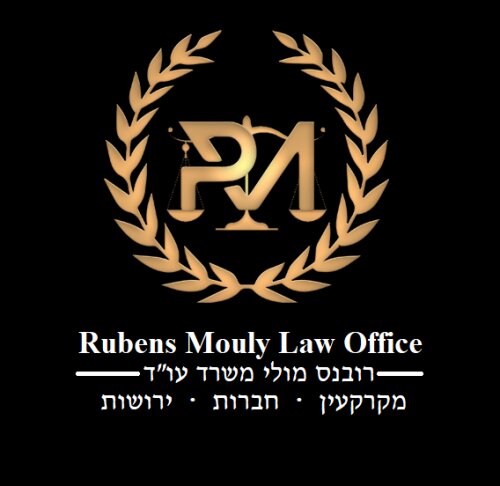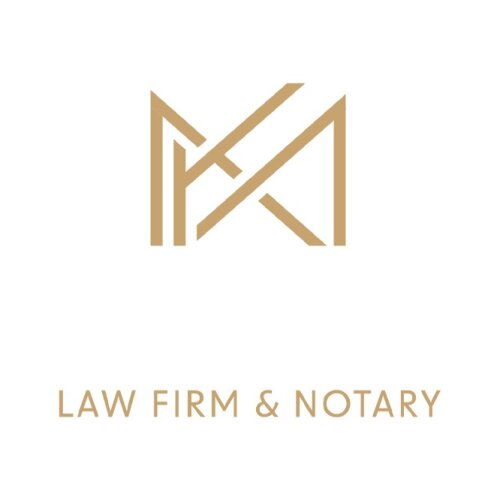Best Commercial Real Estate Lawyers in Israel
Share your needs with us, get contacted by law firms.
Free. Takes 2 min.
Free Guide to Hiring a Real Estate Lawyer
Or refine your search by selecting a city:
List of the best lawyers in Israel
About Commercial Real Estate Law in Israel
Commercial real estate in Israel encompasses a broad range of properties including office spaces, industrial sites, retail stores, and more. This sector is governed by a comprehensive legal framework that aims to regulate transactions, ownership rights, leases, zoning laws, and taxation. As Israel is home to a flourishing economy and a rapidly developing real estate market, understanding the intricacies of local laws is crucial for investors, developers, and businesses engaging in commercial property transactions.
Why You May Need a Lawyer
Engaging in commercial real estate transactions can be complex due to the involved financial stakes, legal stipulations, and potential liabilities. Common situations where legal advice may be necessary include:
- Navigating the acquisition or disposition of commercial properties.
- Negotiating lease agreements with nuanced terms and conditions.
- Understanding zoning regulations and obtaining necessary building permits.
- Resolving disputes related to property boundaries, tenant rights, or breaches of contract.
- Ensuring compliance with environmental and safety regulations.
- Managing tax implications and seeking exemptions or deductions.
Local Laws Overview
Israel's commercial real estate sector is subject to several key legal provisions:
- Land Law: Governs ownership, registration, and transfer of properties.
- Contract Law: Dictates the formation and enforcement of agreements, crucial in lease negotiations and sales.
- Planning and Building Law: Covers development approvals, zoning regulations, and construction codes.
- Taxation: Includes property taxes, acquisition taxes (Mas Rechisha), and capital gains tax implications.
- Tenant Protection Laws: Offer rights and obligations for both landlords and tenants.
Frequently Asked Questions
What constitutes commercial real estate in Israel?
Commercial real estate includes lands and buildings intended for business activities such as offices, industrial warehouses, retail spaces, and agricultural land, distinct from residential properties.
Is foreign ownership allowed in Israeli commercial real estate?
Yes, foreign entities can own commercial properties in Israel, though there may be restrictions in certain areas, and foreign investors are subject to specific tax and legal obligations.
What is the role of the Israel Land Authority?
The Israel Land Authority (ILA) manages land owned by the State, including leasing and sales. It plays a crucial part in transactions involving state-owned land.
What are the typical lease terms for commercial properties?
Lease terms vary but typically extend from 3 to 10 years, often with extension options. Rent payments, maintenance responsibilities, and modification permissions are key negotiation points.
What taxes apply to commercial real estate transactions?
Taxes include acquisition tax (payable by the buyer), VAT on certain commercial transactions, and possibly capital gains tax upon sale.
Can zoning regulations impact my commercial property plans?
Yes, zoning laws dictate land use and development capabilities. Understanding these regulations is essential for any construction or modification plans.
How can disputes with tenants or landlords be resolved?
Disputes may be settled through mediation, arbitration, or legal action, depending on the issue and any pre-agreed dispute resolution clauses in contracts.
Are there restrictions on developing land in environmentally sensitive areas?
Certain regions are protected, and development may be limited by environmental laws. In such areas, obtaining permits can be more complex and require additional clearances.
What should I consider when purchasing a commercial property?
Key considerations include property valuation, condition, location advantages, existing tenancy agreements, future development potential, and compliance with local laws.
How can I verify property ownership before purchase?
Ownership can be verified through the Land Registry Office, where a historical title search can be conducted to ensure there are no liens or disputes.
Additional Resources
The following organizations and resources can assist individuals seeking advice in the commercial real estate sector:
- Israel Land Authority (ILA)
- Israeli Ministry of Interior (for planning and building regulations)
- Israel Tax Authority (for taxation information)
- Real Estate Lawyers Association in Israel
- Professional real estate consulting firms
Next Steps
If you need legal assistance in commercial real estate, here are the steps to follow:
- Identify Your Needs: Clearly define the legal assistance you require, whether it’s for a transaction, dispute resolution, or compliance.
- Research Legal Professionals: Look for lawyers specializing in commercial real estate law in Israel. Consider their experience, reputation, and client reviews.
- Schedule Consultations: Meet with potential lawyers to discuss your situation and get a sense of their approach and fees.
- Engage a Lawyer: Once you find a suitable lawyer, formally engage their services to ensure they’re authorized to act on your behalf.
- Gather Documentation: Provide all necessary documents and information to your chosen legal professional to facilitate a smooth process.
Taking these steps will help ensure that your commercial real estate ventures are legally sound and well-protected.
Lawzana helps you find the best lawyers and law firms in Israel through a curated and pre-screened list of qualified legal professionals. Our platform offers rankings and detailed profiles of attorneys and law firms, allowing you to compare based on practice areas, including Commercial Real Estate, experience, and client feedback.
Each profile includes a description of the firm's areas of practice, client reviews, team members and partners, year of establishment, spoken languages, office locations, contact information, social media presence, and any published articles or resources. Most firms on our platform speak English and are experienced in both local and international legal matters.
Get a quote from top-rated law firms in Israel — quickly, securely, and without unnecessary hassle.
Disclaimer:
The information provided on this page is for general informational purposes only and does not constitute legal advice. While we strive to ensure the accuracy and relevance of the content, legal information may change over time, and interpretations of the law can vary. You should always consult with a qualified legal professional for advice specific to your situation.
We disclaim all liability for actions taken or not taken based on the content of this page. If you believe any information is incorrect or outdated, please contact us, and we will review and update it where appropriate.
Browse commercial real estate law firms by city in Israel
Refine your search by selecting a city.















